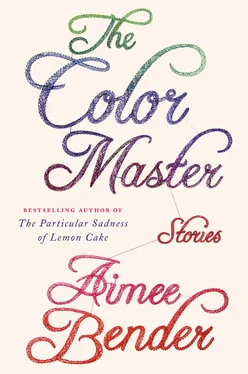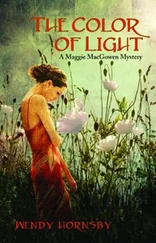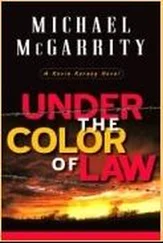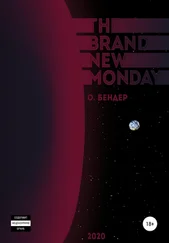This is time travel, he said, narrowing an eye to set the lens. Because the light is old. We’re seeing back in time.
No, we said, wrinkling our noses. We are seeing right now, today.
No, he said, the light has to travel to us and it takes millions of years. What you’re seeing is time.
Excuse me, we said. We were embarrassed to correct him. He seemed so smart. What we’re seeing is space.
It’s space, yes, he said. It’s also time. You’re seeing what has already happened.
That’s absurd, we said, though we did not move.
We make bigger telescopes, radio telescopes, he said, to see back all the way. We can go back thirteen billion years now! Almost to the Big Bang.
No, we said.
Yes!
You can see all that way back?
Yes!
And? we said, sitting up. The suitcase?
We pictured it at the end of a telescope. The longest, biggest telescope ever made. A tiny suitcase, of a pleasing brown leather.
Well, he said, leaning on the side wall. We can see very close to the beginning, but at around 400,000 years, the universe goes opaque.
We almost tossed him off the roof then. We were right there at the edge.
It’s true, he said. We can see all the way to about year 400,000! Can you believe that? But before that, it’s veiled.
We stopped to consider this. The universe began in a veil.
Like a bride? we said.
He smiled for the first time that day.
Sure, he said, relenting. Like a bride.
And she takes off her veil at 400,000?
She does, he said. We see her quite well after that.
So who’d she marry? we ask, settling ourselves at his feet. When a bride removes her veil, it’s the moment of marriage.
I don’t know, he said, scratching his head. Everything? Us?
The doctor went to see the rabbi. “Tell me, rabbi, please,” he said, “about God.”
The rabbi pulled out some books. She talked about Jacob, wrestling the angel. She talked about Heschel and the kernel of wonder as a seedling that could grow into awe. She tugged at her braid and told a Hassidic story about how it is said that at the end of your life you will need to apologize to God for the ways you have not lived.
“Not for the usual sins,” she said. “For the sin of living small.”
The doctor sat in his suit in his chair and fidgeted. Although he had initiated the conversation, he found the word “God” offensive, the same way he disliked it when people spoke about remodeling their kitchens.
“I’m sorry,” he said, standing. “I cannot seem to understand what you are saying. Are you speaking English?”
“English?” said the rabbi, closing a book. Dust motes floated off the pages into the room and caught the light as they glided upward. She wrinkled her forehead as if she was double-checking in there. “Yes,” she said.
A few months later, the rabbi became sick. She had a disease of the blood, a disease that needed weekly transfusions that she scheduled on Wednesdays so she would be at her best for Shabbat.
The doctor who had come to see her was a doctor of blood. A transfusionist. He had chosen this profession because blood was at the center of all of it. It was either blood, or the heart, or the brain. Or the lungs. He picked blood because it was everywhere. He was never even slightly interested in skin, or feet, joints, or even genitals. It was the most central core stuff of life and death that made him tolerate all those god-awful courses in anatomy and biochemistry.
She thought of him as she sat with her husband, staring at their enfolded hands, wondering what to do.
“That man,” she said, looking up. “That man who came by a few months ago.”
When the rabbi was in her paper gown she looked smaller, of the earth, and the doctor did not mind the role reversal.
“I’m so sorry you have to go through this,” he said.
The rabbi lay down on the cold table. She offered her arm. The blood drained from her; the blood of another person filled her. The doctor stood beside her and reset the instruments in a line.
The rabbi came for many transfusions, and she recovered at a brisk pace, filled with the blood of Hindus and Lutherans. The treatments went so well she didn’t have to visit as often anymore, and the doctor missed seeing her at the clinic. After a month had gone by, he went to her office again, where he found her talking to another rabbi, massaging the bottom of a stockinged foot. He stood outside the door as she sifted through her shelves, finding a book, opening it to a page, the two rabbis huddled shoulder to shoulder, commenting, gesturing. The age-old activity of Jews.
The doctor stayed near the door. He was not one to interrupt.
It was when the rabbi was locking up that she glanced over and saw him. Her color was back. Her eyes were clear. She was an attractive woman, with a kind, bearish husband, one raven-haired child, pink dots of warmth in the centers of her cheeks. She hugged him, and pressed his hand, and thanked him, and he said he would like to talk to her again.
“About God?” she asked.
“I’m not sure,” he said. “I don’t think so.”
They went to a coffee shop, because she could now go no longer than two hours without food.
She asked him why blood. He explained. The river of it. They picked at a croissant on wax paper between them. The radio expelled old pop songs. He felt something stir inside him when beside her, but it was not lust, and it was not religion. What was it? “I feel a stirring when I sit with you,” he said, rolling his coffee mug in his hands. “But it is not lustful.”
“I’m married,” she said, as an afterthought. She had bright-blue clay earrings on, formed into the shapes of stars.
“It’s like the coffee tastes more like coffee,” he said.
She sipped hers.
“There’s good coffee here,” she said.
“It’s not that.”
There was a pause. He found it awkward. She did not seem to mind. She dipped a croissant end into her coffee, and the buttery layers soaked up the warmth.
“I gave you the blood of other religions,” he blurted.
She laughed out loud, lifting out the croissant. “No problem,” she said. “I like what you gave me. It’s great. How’d you know?”
“There’s a box on the donation form,” he said. “An optional box.”
“Ah,” she nodded.
“I went with those who had checked the optional box.”
“How interesting that it’s a box on a form,” she said, chewing. “I’ve never heard of that before.”
He scratched his nose. “It’s new.”
“Hospital rules?”
“No.”
“Who made the form?”
“Me,” he said.
“You can do that?”
“Sure.” He shrugged. “No one thinks to question an extra form. Plus, it’s optional.”
“So—who’d I get?” she asked, now dipping the croissant torso.
His hands were shaking, slightly. He put them flat on the table, to calm them. He wasn’t sure why he was so nervous around her.
“Christians,” he said. “Of all sorts. Including a Jehovah’s Witness. Several Muslims. A few Jews.”
“Maybe it’s a new route to world peace,” she said. “Transfuse people.”
“And atheists?” he said, tentatively.
“What about them?”
“I gave you atheist blood, too,” he said. He cringed, visibly.
She laughed again. All that warmth in her laugh, like it could embrace someone across a room.
“I don’t hate the atheists,” she said.
“I’m an atheist,” he said, a little too loud, and he reached out for her hand.
For a second, she held his. His hand was much wider than hers, and her hands, not usually considered dainty, looked small and slender next to his.
Читать дальше













